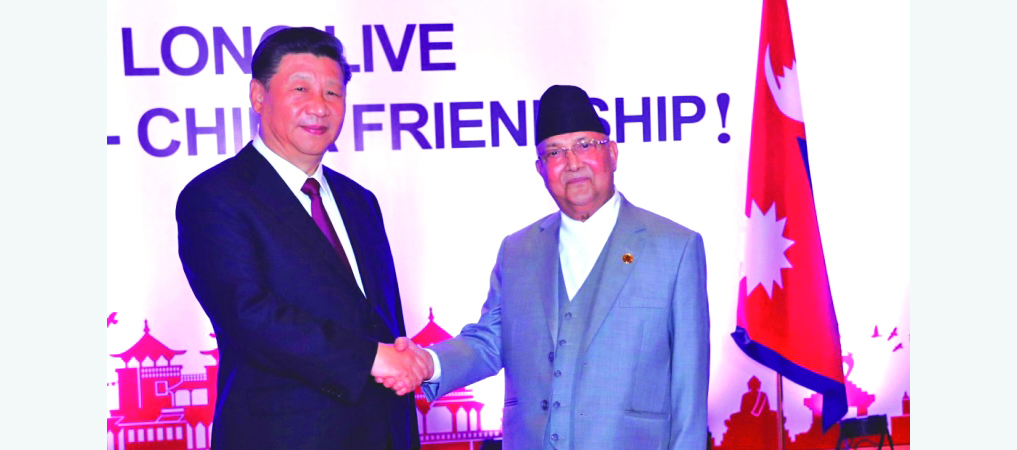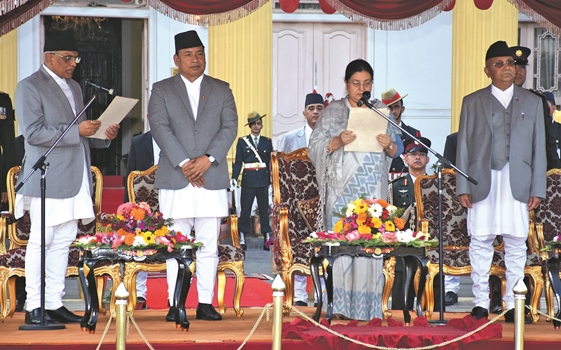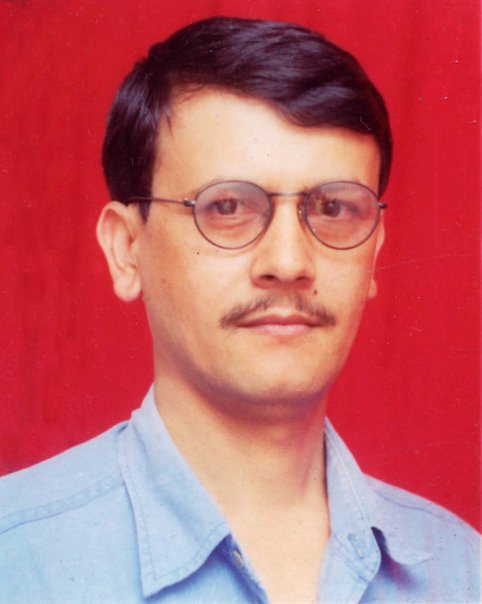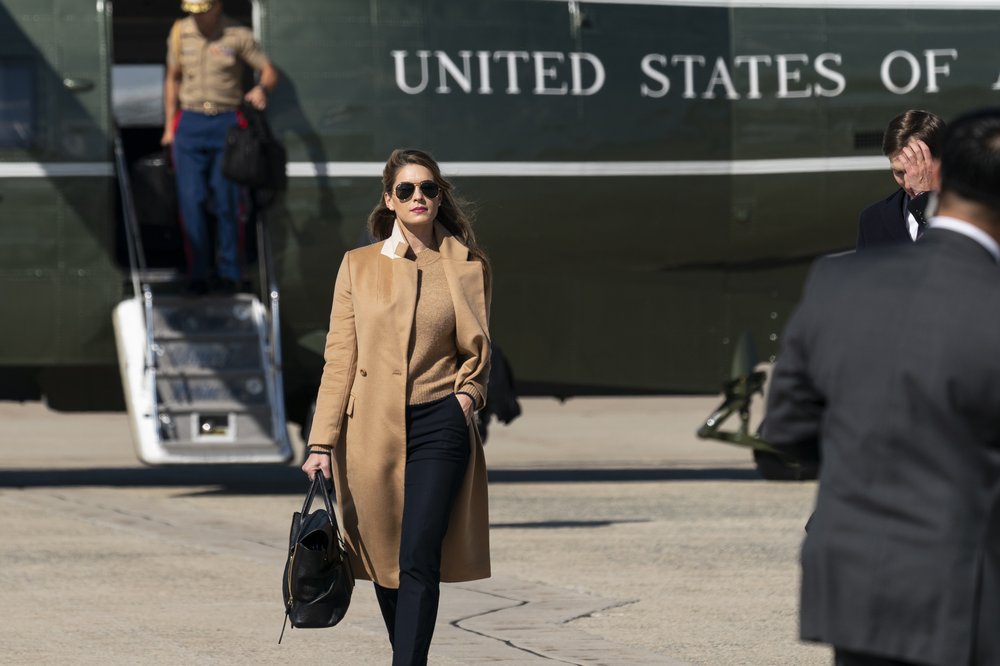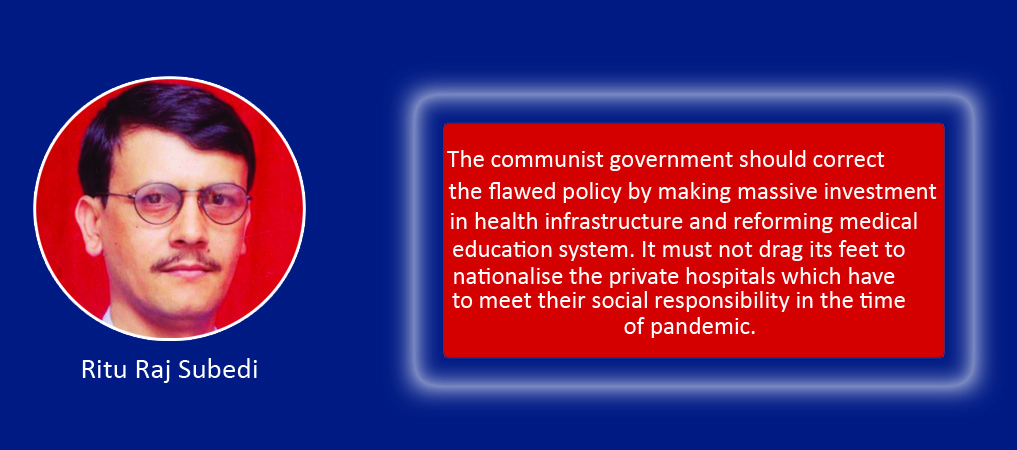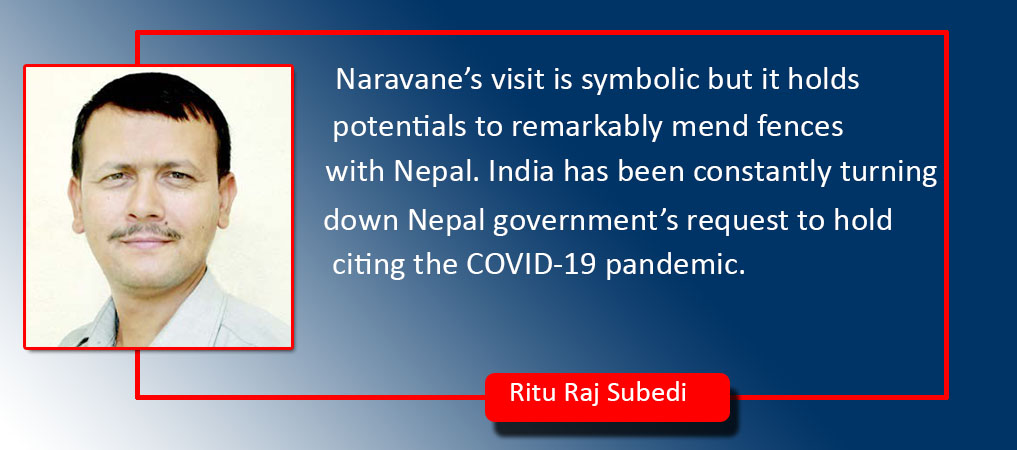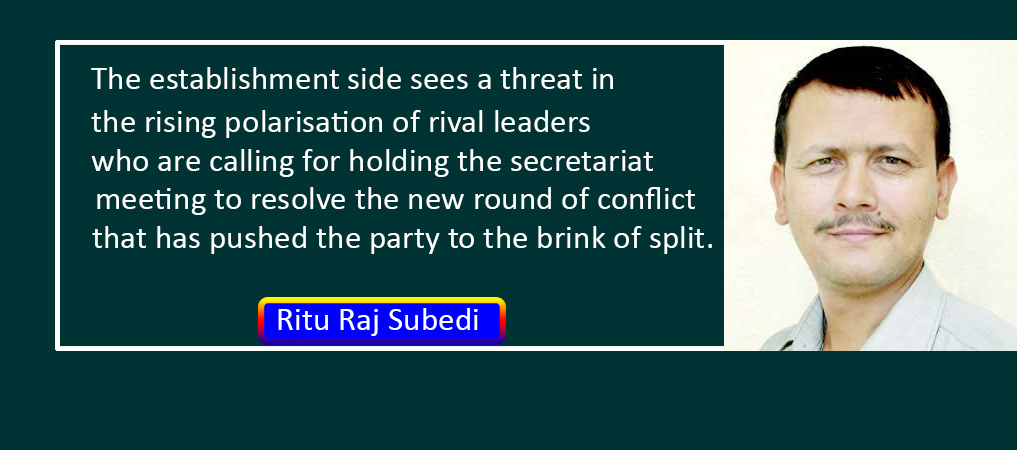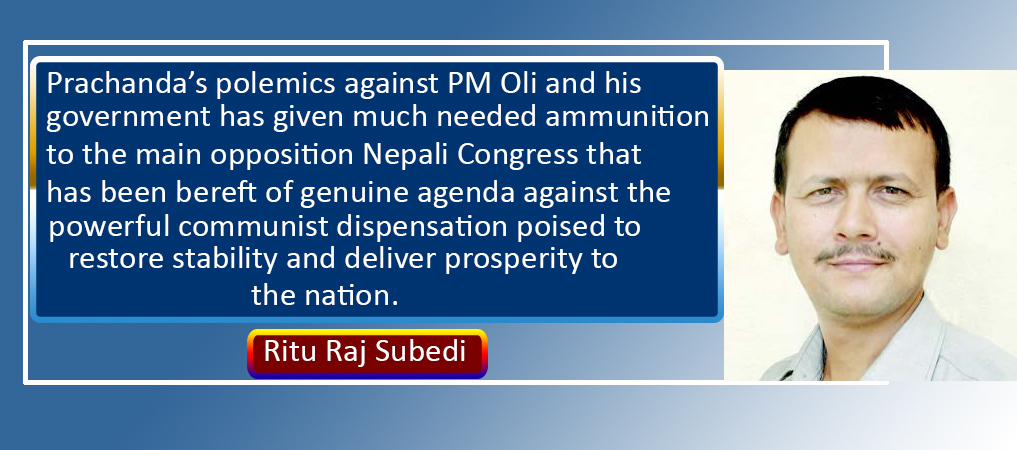NCP Division A Lethal Blow To Left Movement

Ritu Raj Subedi
Last Tuesday (December 22) turned out to be a day of tragedy for the Nepali communist movement. The day saw the vertical split of Nepal Communist Party (NCP), sending a shock wave across its leaders, cadres and well-wishers. Created through the unification of two erstwhile parties - CPN-UML and CPN-Maoist Centre - two and a half years ago, the NCP emerged as the largest political force from the historic three-tier elections in 2017. The emergence of NCP and its huge electoral success marked the apogee of Nepal’s communist movement that started in the Nepali soil in 1949. The NCP suffered the split before it completed the unification process. It was set to hold a unity convention in April next year. But the intra-party bickering took a nasty turn, prompting Prime Minister and chairman KP Sharma Oli to dissolve the House of Representative (HoR) and seek a fresh electoral mandate.
Parallel groups
The HoR dissolution set off the division into two parallel groups – one led by PM Oli himself and another by Pushpa Kamal Dahal Prachanda and Madhav Kumar Nepal. Both sides are now engaged in legal battle to claim their legitimacy, name, poll symbol and party offices. Division has reached down to the ward level, with factional groups locked in internecine fight to capture the party’s offices and property. The provincial governments have also become unstable. Lawmakers belonging to the Prachanda-Nepal camp have filed a no-confidence motion against Dormani Paudel, Chief Minister of Bagmati Province, a close ally of PM Oli. The slippery slope does not end here, it will lead to more dislocations and despair in the party’s organisation. The pandemic of split will quickly spread to other provinces too, escalating the process of instability and threat to the federal democratic order. It appears that Nepali communists need no external enemies; they are themselves out there to fight to the finish.
The split will leave painful repercussions for the nation’s communist movement. The NCP has around 800,000 organised members. Many of them may not want to show allegiance to any factional groups. This risks turning them passive which can grind down the left influence at the grassroots in the long-run. The disappointed supporters will desert the party and stay out of the active politics forever. This trend was seen in the past when various communist parties underwent disintegrations without plausible reasons. Many dedicated foot soldiers grew disillusioned with the hypocrisy and ideological deviation of the leadership.
What is more worrying is that factional leaders and cadres have indulged in smear and mudslinging campaigns against each other, which are now galore on social media. They resort to derogatory terms against their own leaders for whom they had great respect prior to the split. Usually, communist cadres are taught to follow social decency, etiquette and propriety. They swear an oath to sacrifice and struggle for building a classless, equal, beautiful and rich society when they are granted the membership. In the heat of raging infighting, they have ditched basic civility and camaraderie.
PM Oli cited the non-cooperation and hidden gambit by his colleagues as the key factors, compelling him to disband the parliament and announce the mid-term polls. Apparently, the move is more political than constitutional as many constitution experts have argued that the House dissolution lacks clear constitutional ground. Now all eyes are on the Supreme Court that started hearing on over a dozen writs which have demanded the reinstatement of the HoR. The NCP-led government collapsed two years before completing its full five-year tenure in office. It had 174 seats in 275-member Lower House and formed government in six provinces out of seven.
Lost opportunity
Unfortunately, the NCP leaders let a historic opportunity of nation-building slip through their fingers. This chance came to them after seven decades of the formation of the party that vowed to end all forms of exploitation, feudalism and foreign interferences. The new constitution promulgated in 2015 envisions building a socialist-oriented economy and inclusive social order. The people had mandated the NCP to execute that grand socialist project through the ballots at a time when the classical form of communism had lost much of its fire and lustre globally. The powerful communist dispensation was expected to put the nation on the firm path of stability and prosperity following the prolonged cycle of instability, decade-long armed conflict, devastating earthquake and ensuing blockade.
The SC verdict will seal the fate of the rival groups. Whatever the court’s decision, there is no bright poll prospect for either group owing to the vertical split. Sooner or later they will face the voters. Both the parties will find themselves in an odd situation when they are out on the stump. As their candidates canvass for votes, they will naturally face a stunning question from the electorates: “We had handed you near two-thirds majority in the last election. Why did you come back leaving your poll promise in the middle?”
(Deputy Executive Editor of The Rising Nepal, Subedi writes regularly on politics, foreign affairs and other contemporary issues)
Recent News

Do not make expressions casting dout on election: EC
14 Apr, 2022
CM Bhatta says may New Year 2079 BS inspire positive thinking
14 Apr, 2022
Three new cases, 44 recoveries in 24 hours
14 Apr, 2022
689 climbers of 84 teams so far acquire permits for climbing various peaks this spring season
14 Apr, 2022
How the rising cost of living crisis is impacting Nepal
14 Apr, 2022
US military confirms an interstellar meteor collided with Earth
14 Apr, 2022
Valneva Covid vaccine approved for use in UK
14 Apr, 2022
Chair Prachanda highlights need of unity among Maoist, Communist forces
14 Apr, 2022
Ranbir Kapoor and Alia Bhatt: Bollywood toasts star couple on wedding
14 Apr, 2022
President Bhandari confers decorations (Photo Feature)
14 Apr, 2022



